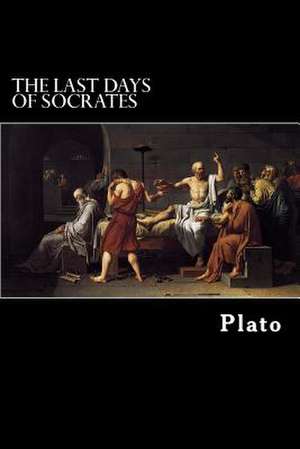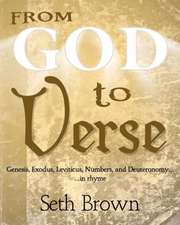The Last Days of Socrates
Autor Plato Ilustrat de Alex Struiken Limba Engleză Paperback
| Toate formatele și edițiile | Preț | Express |
|---|---|---|
| Paperback (5) | 52.89 lei 24-35 zile | +18.61 lei 7-11 zile |
| Penguin Books – 27 oct 2010 | 52.89 lei 24-35 zile | +18.61 lei 7-11 zile |
| Penguin Books – 26 mar 2003 | 53.24 lei 24-35 zile | +19.21 lei 7-11 zile |
| CREATESPACE – 30 apr 2010 | 80.43 lei 3-5 săpt. | |
| CREATESPACE – | 92.87 lei 3-5 săpt. | |
| Lulu.Com – 22 aug 2020 | 83.91 lei 6-8 săpt. | |
| Hardback (1) | 172.46 lei 6-8 săpt. | |
| Lulu.Com – 22 aug 2020 | 172.46 lei 6-8 săpt. |
Preț: 92.87 lei
Nou
Puncte Express: 139
Preț estimativ în valută:
17.77€ • 18.56$ • 14.67£
17.77€ • 18.56$ • 14.67£
Carte disponibilă
Livrare economică 25 martie-08 aprilie
Preluare comenzi: 021 569.72.76
Specificații
ISBN-13: 9781481266000
ISBN-10: 1481266004
Pagini: 258
Dimensiuni: 152 x 229 x 14 mm
Greutate: 0.35 kg
Editura: CREATESPACE
ISBN-10: 1481266004
Pagini: 258
Dimensiuni: 152 x 229 x 14 mm
Greutate: 0.35 kg
Editura: CREATESPACE
Notă biografică
Plato (428/427 or 424/423 - 348/347 BC) was an Athenian philosopher during the Classical period in Ancient Greece, founder of the Platonist school of thought, and the Academy, the first institution of higher learning in the Western world. He is widely considered the pivotal figure in the history of Ancient Greek and Western philosophy, along with his teacher, Socrates, and his most famous student, Aristotle. Plato has also often been cited as one of the founders of Western religion and spirituality. The so-called Neoplatonism of philosophers like Plotinus and Porphyry influenced Saint Augustine and thus Christianity. Alfred North Whitehead once noted: "the safest general characterization of the European philosophical tradition is that it consists of a series of footnotes to Plato." Plato was the innovator of the written dialogue and dialectic forms in philosophy. Plato is also considered the founder of Western political philosophy. His most famous contribution is the theory of Forms known by pure reason, in which Plato presents a solution to the problem of universals known as Platonism (also ambiguously called either Platonic realism or Platonic idealism). He is also the namesake of Platonic love and the Platonic solids. His own most decisive philosophical influences are usually thought to have been along with Socrates, the pre-Socratics Pythagoras, Heraclitus and Parmenides, although few of his predecessors' works remain extant and much of what we know about these figures today derives from Plato himself. Unlike the work of nearly all of his contemporaries, Plato's entire body of work is believed to have survived intact for over 2,400 years. Although their popularity has fluctuated over the years, the works of Plato have never been without readers since the time they were written.
Cuprins
The Last Days of SocratesChronology
Preface
General Introduction
Further Reading
A Note on the Texts
Euthyphro-Holiness Socrates in Confrontation
Apology
-Justice and Duty (i) Socrates Speaks at his Trial
Crito
-Justice and Duty (ii) Socrates in Prison
Phaedo
-Wisdom and the Soul Socrates about to Die
Postscript: The Theory of Ideas in the Phaedo
Notes Index


























